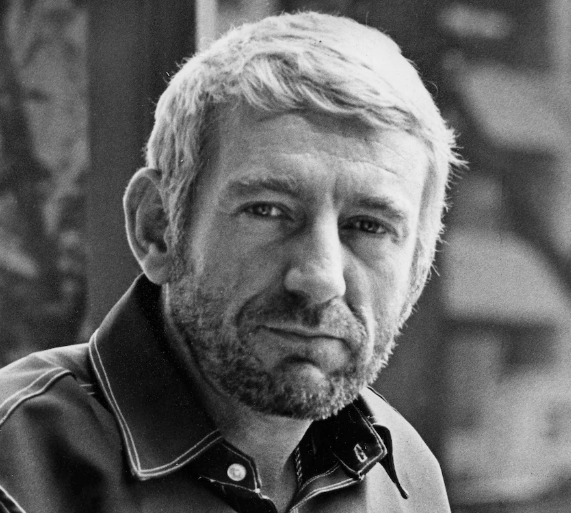"The Unfortunates" by poet Cates Marvin, is a sad tale of sensitive people who are overwhelmed by life's cruel tricks to make them feel bad and keep them awake at nights contemplating what is horrible, ugly, and unfortunate in the cities they live in. It is not to my liking , mostly because the poet, Cates Marvin, tries to find some equal ground between herself (and those she presumes to speak for) and the homeless she espies whose misery gives her the jitters and attending guilt feelings, to which I say no dice. These steamy, cold streets are the mean ones better writers than Marvin, or me have walked down before, and they've managed to absorb the steaminess and squalor of their life and, depressed or no, didn't obsess on their frayed nerves. Their anxiety wasn't the subject, but an entrée to another topic. Marvin sticks with the frayed nerves, and that makes the poem a chore to read even once. It's a straining, over stocked equation; after spending the first stanza presenting the pathetic detailing the doings of the sad creatures he pities in ways that make them sound exotic, alien and strange, the second stanza smacks us across the face with slippery buckets of self-reflection in which Marvin, or the poet's stand in, waxes and whines on how this saps the vitality, makes the soul sink, and essentially turns sleep into a rehearsal for death:
Those hours we haggle,
wondering when the sincerity of sky's blue
will arrive, how come nobody's bothered to
repair the loose latch on the front gate, and
what kinds of eyes melancholy lovers have.
There is enough baloney here to make a hundred Salvation Army sandwiches. And for his sleep, one wonders why she doesn't buy ear plugs and a new mattress. Fragile poets are nothing new to verse and one ought not condemn them outright for their confessions of bad serves and upset equilibrium, but Marvin is neither Eliot nor Plath nor John Berryman , all three of whom could do more with their depressed witness to harsh facts and resulting sets of despair with remarkable self-reflection; the result was an honest poetry of personal exploration, and none of them, I recall, used the facts of poverty or squalor as a pretext to wallow in the kind of makeshift misery Marvin has concocted.
It helps us to remember that Samuel Beckett's plays, novels, and poems were about those situations that have sapped us of our will to live creatively and makes a continued life of drudgery unthinkable to bear, and yet we do, getting up each day to face the same repetitious humiliations not from any courage to stay the course but because, more plainly, less gloriously, much more banally we cannot think of anything more interesting to do with our days. From this, Beckett gives us great comedy and creates a language of men that is more animal instinct than discourse; he digs within the sour mood of dread and drudgery and reveals sentences as loud and fragmented and repeated at odd intervals to kill what small spark of truth still rests in us, dormant. Beckett , unlike Marvin, reveals nothing apart from antics and absurdity, the rituals and recitations of characters keeping themselves distracted against a yawning chasm. Marvin can't stop talking about it and her feelings, and this quality, this yakkity yak she provides us does nothing to make you care or make you stay interested in the struggle.
The intent of the subject makes her lines lead-footed, with some comically awful alliteration.", malice moves like mice…" is noteworthy not for evoking states of depression and ennui, but rather of old cartoons where the mice come out of their hiding places after the lights are out and throw one hell of a party). It's not a good fit at all, and somehow I'm dubious to Marvin's intent with the poem. The message is less about economic injustice than it is Marvin's feelings of powerlessness, which is fine in itself, but powerlessness in and of itself should not result in this kind of static, powerless writing.

